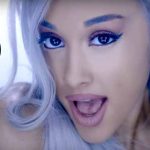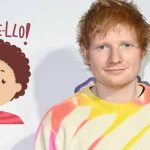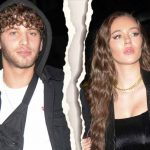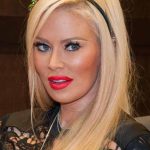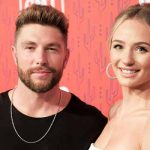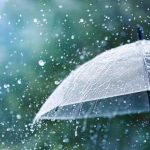N95 Vs. KN95 Masks : Which Ones Work Best to Protect You Against Covid?
What is a N95 respirator?
N95 respirators are the PPE most often used to control exposures to infections transmitted via the airborne rou`te, though their effectiveness is highly dependent upon proper fit and use.
Wearing a mask over your nose and mouth is required on planes, buses, trains, and other forms of public transportation traveling into, within, or out of the United States and while indoors at U.S. transportation hubs such as airports and train stations. Travelers are not required to wear a mask in outdoor areas of a conveyance (like on open deck areas of a ferry or the uncovered top deck of a bus).
What does a N95 respirator protect you from during the COVID-19 pandemic?
N95 respirators and surgical masks are examples of personal protective equipment that are used to protect the wearer from particles or from liquid contaminating the face. The Centers for Disease Control and Prevention (CDC) National Institute for Occupational Safety and Health (NIOSH) also regulates N95 respirators.
The Department of Labor’s Occupational Safety and Health Administration (OSHA) regulates entities for compliance with worker safety rules and OSHA standards, including, for example, the proper use of respirators in different work environments.
It is important to recognize that the optimal way to prevent transmission of microorganisms, such as viruses, is to use a combination of interventions from across the hierarchy of controls, not just PPE alone.COVID-19 Resources on Respirators and Masks.
CDC Recommendations for the General Public
Please refer to CDC’s webpage for recommendations regarding use of masks. Effective February 2, 2021, CDC issued an order requiring masks on planes, buses, trains, and other forms of public transportation traveling into, within, or out of the United States and in U.S. transportation hubs such as airports and stations.
Face Masks
A face mask is a product that covers the wearer’s nose and mouth. Face masks are for use as source control by the general public and health care personnel (HCP) in accordance with CDC recommendations, and are not personal protective equipment. Face masks may or may not meet any fluid barrier or filtration efficiency levels; therefore, they are not a substitute for N95 respirators or other Filtering Facepiece Respirators (FFRs), which provide respiratory protection to the wearer, or for surgical masks, which provide fluid barrier protection to the wearer.
N95 Respirators
An N95 respirator is a respiratory protective device designed to achieve a very close facial fit and very efficient filtration of airborne particles. Note that the edges of the respirator are designed to form a seal around the nose and mouth. Surgical N95 Respirators are commonly used in healthcare settings and are a subset of N95 Filtering Facepiece Respirators (FFRs), often referred to as N95s.
How to tell if your respirator and N95-style mask is counterfeit or poor quality
CBC Marketplace tested KN95 and KF94 masks sold online and at big box stores. Half of them didn’t offer the level of protection they’re supposed to, according to the lab test results.
Comparing Surgical Masks and Surgical N95 Respirators
The FDA regulates surgical masks and surgical N95 respirators differently based on their intended use.
A surgical mask is a loose-fitting, disposable device that creates a physical barrier between the mouth and nose of the wearer and potential contaminants in the immediate environment. These are often referred to as face masks, although not all face masks are regulated as surgical masks. Note that the edges of the mask are not designed to form a seal around the nose and mouth.
An N95 respirator is a respiratory protective device designed to achieve a very close facial fit and very efficient filtration of airborne particles. Note that the edges of the respirator are designed to form a seal around the nose and mouth. Surgical N95 Respirators are commonly used in healthcare settings and are a subset of N95 Filtering Facepiece Respirators (FFRs), often referred to as N95s.
General N95 Respirator Precautions
- People with chronic respiratory, cardiac, or other medical conditions that make breathing difficult should check with their health care provider before using an N95 respirator because the N95 respirator can make it more difficult for the wearer to breathe.
- Some models have exhalation valves that can make breathing out easier and help reduce heat build-up. Note that N95 respirators with exhalation valves should not be used when sterile conditions are needed.
- All FDA-cleared N95 respirators are labeled as “single-use,” disposable devices. If your respirator is damaged or soiled, or if breathing becomes difficult, you should remove the respirator, discard it properly, and replace it with a new one. To safely discard your N95 respirator, place it in a plastic bag and put it in the trash. Wash your hands after handling the used respirator.
- N95 respirators are not designed for children or people with facial hair. Because a proper fit cannot be achieved on children and people with facial hair, the N95 respirator may not provide full protection.
Which face shields are recommended to prevent the spread of COVID-19?
For example, people who interact with those who are deaf or hearing impaired may find that a face shield is better than a mask when communicating. If you must wear a face shield instead of a mask:
- Choose a face shield that wraps around the sides of your face and extends below your chin or a hooded face shield. This is based on the limited available data that suggest these types of face shields are better at preventing spray of respiratory droplets.
- Wash your hands after removing the face shield. Avoid touching your eyes, nose, and mouth when removing it.
- Clean and disinfect reusable face shields according to the manufacturer’s instructions or by following CDC face shield cleaning instructions. If you use a disposable face shield, wear it once and throw it away according to the manufacturer’s instructions.
Mask adaptations and alternatives
CDC recognizes that wearing masks may not be possible in every situation or for some people. Those who cannot wear a mask are urged to prioritize virtual engagement when possible. For in-person activities, we have provided a few examples of what you can do to make wearing a mask more feasible and how to reduce the spread of COVID-19 if you cannot wear a mask.
Should I Be Wearing an N95 or KN95?
N95 Vs. KN95 Masks
Advice from U.S. authorities on the need for face masks has flipped back and forth since Covid-19 took hold in 2020. In May, the Centers for Disease Control and Prevention said immunized Americans could ditch their masks in most settings. It reversed course in July amid a rise in cases caused by the more transmissible delta variant. Now, with the quickly spreading omicron variant causing a surge in infections, the agency is preparing to update the guidance again as many medical professionals urge people to upgrade their masks to the highly protective N95 or KN95 masks preferred by health care workers.
What’s the current advice?
The CDC last updated its masking advice in October, recommending that people age 2 and older, regardless of vaccination status, wear well-fitting masks while indoors in public spaces. That advice came out before the omicron variant emerged in November. Director Rochelle Walensky said Jan. 12 that the agency would be updating mask information available on its website “to best reflect the options available to people and the different levels of protection they provide.” She noted that “any mask is better than no mask.”
What are N95 and KN95 masks?
Medical masks, which are regulated devices, come in two types. Surgical masks are the loose-fitting, one-size-fits-all kind that are rectangular when flat. A more sophisticated medical mask is called a respirator. In the U.S., the most commonly available versions are called N95s and KN95s; in Europe, these are called FFP2s. Respirators are meant to form a tight seal against the face. That forces the user to pull air through the device’s filter rather than through gaps on the sides. They are designed to keep out not only respiratory droplets, but also smaller aerosol particles that can carry infectious agents and float for a time through the air. Apart from medical professionals, respirators are also often worn by tradespeople such as painters to protect them from airborne toxins.
What’s the difference between an N95 and a KN95?
n95 masks kn95 masks
The biggest difference between N95 and KN95 masks, which both filter out at least 95% of particles in the air, is where they are certified. KN95s are manufactured in China and thus are subject to different certification requirements than U.S.-made N95s. In China, KN95 manufacturers must run a “fit test” on real humans to ensure the masks allow little to no leakage. Makers of N95s aren’t required to run that test but must still meet standards set by the National Institute for Occupational Safety and Health. The CDC estimates that about 60% of KN95s in the U.S. are fakes, that is, counterfeits made to look as if they came from legitimate manufacturers in China, and don’t meet NIOSH requirements.
Is KN95 equivalent to N95 mask?
Most N95 masks are still made in China. Similarly, the CDC has authorized the use of KN95 masks as a suitable alternative to N95 masks for its response to Covid-19 and the new Omicron variant. “The KN95 is practically equivalent to N95 in every aspect,” says Amin.
How do you know if a KN95 mask is legit?
How do I make sure my mask is not counterfeit?
- No markings on the face piece.
- No approval (TC) number on mask or headband.
- No NIOSH markings.
- NIOSH is incorrectly spelled.
- There’s decoration or other fabric on the mask.
- Claims that the mask is approved for children. …
- The mask has ear loops instead of headbands.
How can I tell if the face masks, surgical masks, or respirators I want to purchase during the COVID-19 pandemic are counterfeit or fraudulent?
The FDA does not have a list of all counterfeit or fraudulent products. To report fraudulent COVID-19 products to the FDA, email [email protected]. The CDC provides information on identifying counterfeit respirators at Counterfeit Respirators / Misrepresentation of NIOSH-Approval.
How should I wash my cloth COVID-19 mask?
Using a washing machine : Include your mask with your regular laundry. Use regular laundry detergent and the appropriate settings according to the fabric label.
By hand : Wash your mask with tap water and laundry detergent or soap. Rinse thoroughly with clean water to remove detergent or soap.
No, wearing a mask will not harm your health even if you are sick with a cold or allergies. If your mask gets too moist just make sure you are changing it regularly.
Cloth masks and surgical masks do not provide an airtight fit across the face. The CO2 escapes into the air through the mask when you breathe out or talk. CO2 molecules are small enough to easily pass through mask material. In contrast, the respiratory droplets that carry the virus that causes COVID-19 are much larger than CO2, so they cannot pass as easily through a properly designed and properly worn mask.
Adding an extra layer or mask could block vision. Reduced vision could lead to trips, falls, or other injuries.
also read :
- What is the incubation period of COVID-19 Omicron ?
- Norway Covid experts : Europe’s biggest omicron Disease outbreak ‘appears mild’. What we know so far about Europe’s biggest Omicron Pandemic in Christmas Day?
- What are Covid 19 Omicron Variant Symptoms? President Joe Biden will not do to fight the Omicron variant? Pfizer to Seek Approval
- New death as Omicron Variant spreads across UK ! Boris Johnson’s booster jab announcement comes as covid-19 claims another life in Gloucestershire
- A new Covid-19 variant South African scientists warn and Stocks, Cryptocurrency and Oil Prices Sink
- Austria Lockdown for Unvaccinated starts amid COVID resurgence ! start Monday in EU first
- Biden Covid Vaccine Mandate News : What is Vaccine Mandate for Federal Contractors (lawsuit)
- Albert Bourla Arrested ? What is #PfizerGate trends ? A viral claim suggesting that Pfizer CEO Albert Bourla has been arrested for fraud is found to be fake. Who is Albert Bourla ?
- Aaron Rodgers Covid Positive ! is Aaron Rodgers vaccinated ? Packers QB Aaron Rodgers tests positive for COVID-19, will not play in Week 9 vs. Chiefs
- Vaccinations News : fda covid vaccine children . 4th covid vaccine . immunocompromised . nyfd vaccine mandate . dc judge blocks vaccine mandate
- Ed Sheeran covid : Ed Sheeran says he tested positive for Covid-19 . is Ed Sheeran vaccinated ?
- Want a COVID Booster dose shot? University of Washington School of Medicine
- Moderna, Pfizer COVID-19 vaccine hesitancy: Does the data support concerns about side effects?


